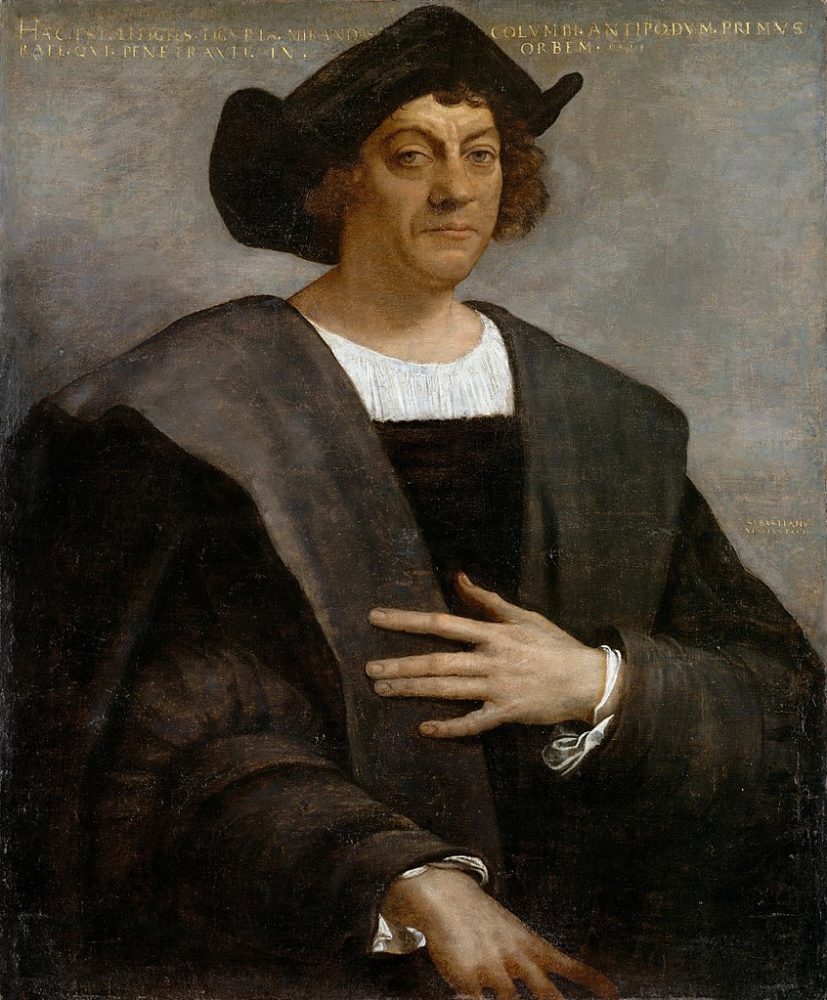Why are we still celebrating this man?

The man is a far cry from the hero taught about in grade school
This past Monday was Indigenous Peoples’ Day, or, as it is still named in the state of North Dakota, Columbus Day. For many people, the necessity of abandoning Columbus Day is not present. Christopher Columbus helped set the foundation for the America we know today, right? Not quite.
Christopher Columbus was the perpetrator of a terrible genocide who lived his final days in desolate isolation. So why are we still willing to celebrate this man, even passively, in a state which owes its existence to indigenous populations?
A far cry from the near story-book hero depicted in elementary school classrooms in the U.S., Columbus was not a great and good man. Instead of learning the names of the Nina, Pinta, and Santa Maria, students should learn the name of the Taino people.
When Columbus arrived in the Carribean there were nearly 250,000 native Taino people in the area. Some 60 years later, there were only a few hundred left.
The loss of indigenous people came as a direct result of Columbus’ actions. Based on his diary entries, the History Network made a short film describing how Columbus viewed the native people of the Americas as a product to be sold and profited from.
Columbus enslaved the indigenous people of North America and shipped them back to Europe, decimating a large portion of the population in the process. He neglected their cultural history and identity by making Christianity mandatory. The most destructive action he made came with biological warfare, introducing diseases that annihilated large portions of the indigenous population.
The American ‘here’ we know today never existed. After parading dismembered body parts through towns to maintain order, Columbus was arrested and charged with mismanaging the territory he had taken and brutality. His final years in life were lived in shame.
So how did this man who was seen as a villain in his own time come to be the image of America’s foundation? Well, in 1828, a book titled “A History of the Life and Voyages of Christopher Columbus” described Columbus’ ‘discovery’ of the Americas and painted him as a hero.
Looking to the 1860s, Columbus became a beacon of pride for Irish and Italian immigrants. They saw Columbus’ as embodiments of themselves, Eastern Europeans in the New World. Small parades from these immigrant communities soon turned into a celebration of a good man that never really existed.
Columbus’ claim to fame is that he ‘discovered the Americas.’ Well, indigenous people had lived in America for thousands of years. Really, all Columbus did was destroy the lives and chronicles of the true founding fathers of this nation.
It’s bad enough that Columbus, a chauvinist, genocidal disgrace was ever given a chance at redemption. However, even with his atrocities known by many, people continue to label the second Monday in October as Columbus Day.
Calling it by the name of Indigenous Peoples’ Day by no means rights the wrongs of the past, but it certainly is a lot more beneficial than naming it after the man who committed said wrongs.
